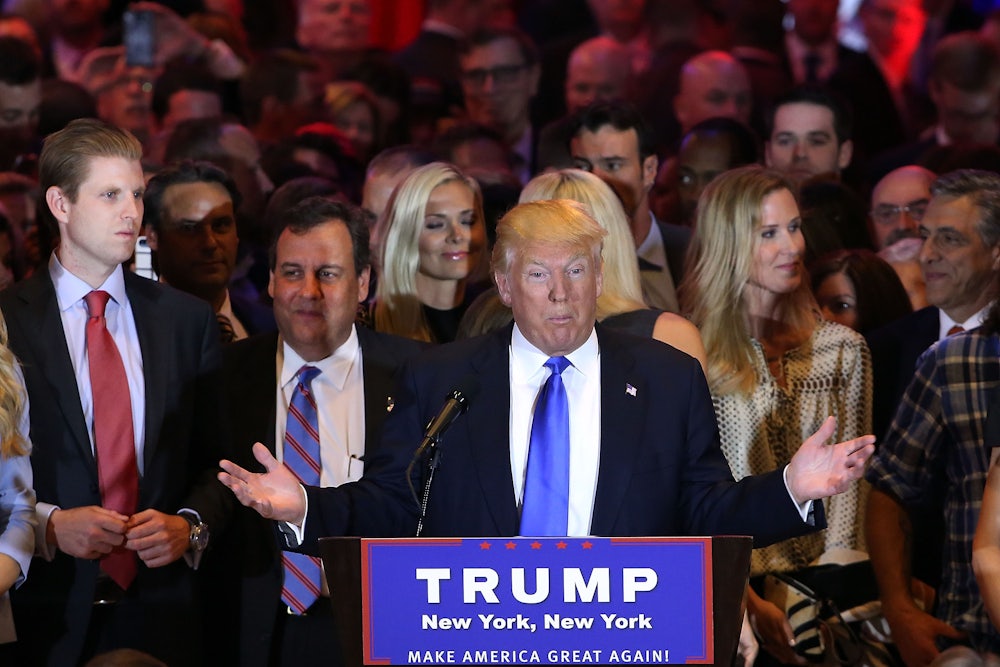The prevailing wisdom in #NeverTrump circles was that Trump, while a formidable political force, had a ceiling of support within the Republican Party. As a bigoted demagogue with little fidelity to conservative principles, he was a third-party candidate who had somehow managed to infiltrate the GOP. Hence, the party was justified—even morally obligated—to strip him of the nomination. There is no point in having a party apparatus, Ross Douthat argued, if it cannot “prevent 35 percent of the Republican primary electorate from imposing a Trump nomination on the party.”
But what if that number were to rise to, say, 60 percent, as was the case in New York? Or 57 percent, as in Pennsylvania, or 64 percent, as in Rhode Island? Trump has not only won large majorities in the last six contests; last night, he won every single county at play across five different states and every single congressional district in three. These results would seem to shatter another article of faith in the anti-Trump faction, that Trump had benefited from a large field of candidates who had split the anti-Trump vote. Now it appears that the candidate who was suffering the most from a large field was none other than Trump himself.
This will make it difficult for the anti-Trumpkins to justify a brokered convention. But it also makes it tough to argue that Trump is an insurgent wrecking the GOP. What the Republican electorate is telling us, with growing emphasis, is that he is the Republican Party, or the closest representative of it this election cycle.
